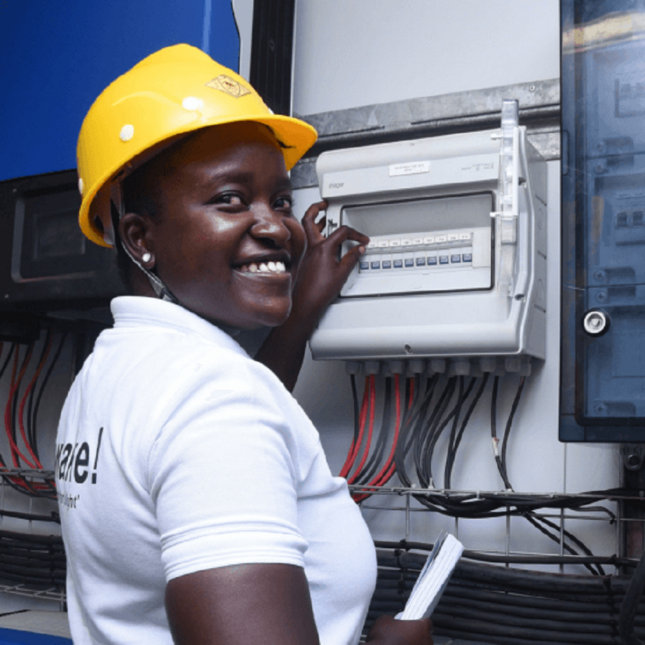Resources
Power for All launches Powering Jobs Census 2022: Strong post-pandemic growth visible
30 September 2022 | During the New York City Climate Week 2022, Power for All, the global campaign to end energy poverty, released its second Decentralized Renewable Energy (DRE) jobs, supported by GET.invest, Good Energies Foundation, and The Rockefeller Foundation. In addition to the global report launch, individual country reports were published on the occasion of several sector events, focusing on five countries specifically.
The industry’s most comprehensive emerging markets employment census shows increased demand for DRE solutions is creating hundreds of thousands of formal and informal jobs. The sector is becoming a major employment engine, especially in remote rural areas in emerging and developing economies where poverty and unemployment levels are high. In addition it is helping achieve universal electricity access while supporting the world’s transition to clean energy.
In order to realize the full social and economic benefits of DRE, the report calls for concerted efforts from all stakeholders in the public, private, and non-profit sectors to ensure the necessary human capital is in place.
“With DRE recovering from the impact of the pandemic faster than the broader economy its promise is clear, however significant challenges remain,” said Kristina Skierka CEO, Power for All. “Energy regulations need to be overhauled to accommodate renewables and other energy innovations, foreign investment encouraged, and structural issues like access to foreign capital and licensing restrictions resolved in order to grow DRE jobs and realize the sector’s full potential.”
According to the report, the DRE sector is a significant contributor to job creation in energy poor countries with the potential to create direct employment for up to half a million people in Africa by 2030. The sector showed great resilience in the face of COVID-19 with jobs returning in 2021 and now surpassing pre-pandemic levels in most of the study countries.
DRE–which includes pico-solar, appliances, solar home systems (SHS), commercial and industrial (C&I) standalone systems, and mini-grids–has an important role to play in accelerating United Nations Sustainable Development Goal 7 (universal access to clean reliable and affordable energy) especially in remote rural communities, and efforts towards reducing greenhouse gas emissions.
The sector has also been a source of ‘productive’ and ‘decent’ employment, especially in emerging economies where employment is a major focus of United Nations Sustainable Development Goal 8 (inclusive and sustainable economic growth, employment and decent work for all). The rapid recovery of jobs following the pandemic proves the sector’s resilience, indicating those jobs are likely immune to the worst recessionary pressures.
Power for All’s “Powering Jobs Census 2022: The Energy Access Workforce” report provides a comprehensive overview of employment in the DRE sector, including skill levels, training opportunities, compensation, participation of women and youth, and job retention. It is based on a survey of more than 350 companies and focus groups across five countries: Ethiopia, India, Kenya, Nigeria, and Uganda. The survey collected employment and sales data from 2019 to 2021 as well as projections for 2022 – 2023.
Supported by GET.invest, Power for All presented the key findings of the report at the Sankalp Global Summit 2022, and launched the Nigeria focus report during a dedicated webinar. Watch the recordings of these sessions.



